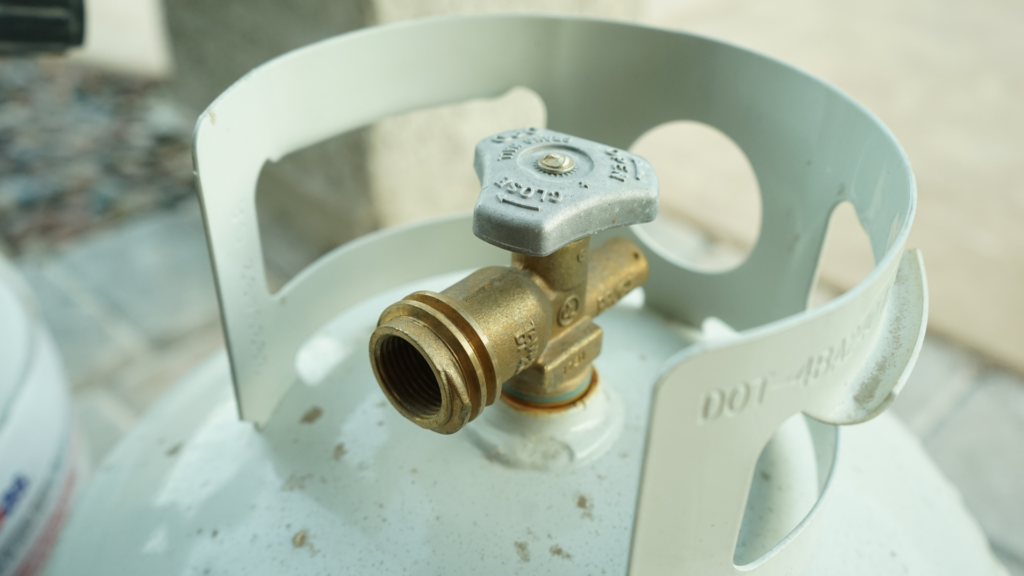Propane is safer than you think! It’s non-toxic, non-poisonous, and insoluble in water so in the unlikely event of a leak you won’t have to worry about hazardous cleanup. Of all alternative fuel sources, propane has the lowest flammability range and the ignition temperature is quite high, meaning that it would take very high temperatures to cause propane to ignite. Propane also dissipates quickly in open air making ignition even less likely. However, like all types of fuel, it’s always important to handle propane carefully. Here’s 11 safety tips for propane use in all aspects of your life!
- Install a carbon monoxide detector on all levels of your home and replace them regularly. Propane appliances and many other types of furnaces all have the potential to release carbon monoxide, an invisible, odorless gas that can cause health issues.
- Make sure propane tanks and cylinders are at least 10 feet from any structure and regularly clear the area of anything combustible like dry leaves, branches, and rags.
- When shopping for propane appliances, always check that it is certified by a provincial agency such as Canadian Standards Association (CSA) or Underwriters Laboratories of Canada (ULC).
- Replace rusted, dented, and expired propane cylinders as it is against the law to refill a damaged cylinder. Make sure you dispose of the old cylinders properly because most provinces require them to be brought to a hazardous waste facility.
- Always store propane cylinders outdoors and away from any ignition sources. It’s best to store them upright.
- Outdoor propane equipment, such camp stoves, BBQs, and lanterns, should always be used on a level surface and away from dry, flammable materials such as brush and wood.
- Don’t leave propane appliances with open flames unattended.
- When transporting cylinders don’t leave them in a parked car unattended, especially in the summer. Heat can build up quickly and potentially cause an explosion.
- Portable propane equipment, such as cylinders for camping, should be inspected before your trip. You can check for leaks by soaking the fuel connection in soapy water and watching for any bubbles to appear which could indicate a leak.
- If you live in an area prone to wildfires make sure you include shutting off the main supply valve on your propane tank in your evacuation plan.
- If in doubt, always call a certified technician to inspect your tank and propane appliances before using them.
Interested in making the switch to propane for your home? Give us a call!
